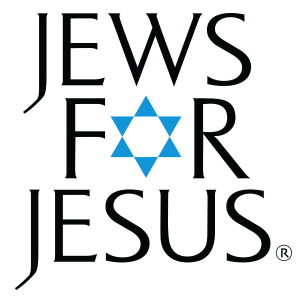Messiah Bridges the Cultural Divide
As Aaron mentioned this month, our Massah team works to meet young Israelis after their IDF service. These young people find themselves in a type of physical diaspora: away from their homes and the known, in a space in between, in flux. Aaron also stated, ‘Many people who won’t take the time to think about God in the midst of life’s routine cares and distractions become receptive to the gospel when they are away from home.’
Often, people who find themselves in a foreign country and away from all they’ve ever known are open to receiving the gospel, as they are desperately in search of an anchor. This is the perfect opportunity to love them by sharing the good news of Messiah Jesus with them. As the Lord met with Israel in the desert at Mount Sinai and revealed His heart for His people, so we can meet with those in diaspora and reveal the Father’s heart to them. In fact, the Lord required Israel to do this. Deuteronomy 10:19 states, ‘Therefore love the stranger, for you were strangers in the land of Egypt.’ What better way to love those in diaspora – the stranger – than by showing them the heart of the Father? And this requirement extends to us too. Jesus states:
“For I was hungry and you gave me food, I was thirsty and you gave me drink, I was a stranger and you welcomed me, I was naked and you clothed me, I was sick and you visited me, I was in prison and you came to me.” Then the righteous will answer him, saying, “Lord, when did we see you hungry and feed you, or thirsty and give you drink? And when did we see you a stranger and welcome you, or naked and clothe you? And when did we see you sick or in prison and visit you?” And the King will answer them, “Truly, I say to you, as you did it to one of the least of these my brothers, you did it to me.” (Matthew 25:35-40)
This Scripture does not extend only to physical needs. We are to share the bread of life and the living water with strangers – not only those in a physical diaspora but also in a cultural diaspora.
Jesus shows us a clear example of bridging a cultural divide in the account of the woman at the well. This woman was a Samaritan and was considered by the Jews of the day to be a half-breed. Thus, she was in a cultural diaspora because she didn’t fit the mould. Because of her life choices, she was ostracised by her own people and thus in an emotional diaspora as well. She had been married five times before and was now in a relationship with a man who was not her husband. She was disgraced. That is why she was at the well during the middle of the day.
The Living Water bridged that divide. He didn’t let the cultural customs of the day stop Him from reaching out to her and bringing her back to Himself and the Father, bringing her ‘home’.
Because of the clear command of the Lord to Israel and Jesus’ example, we have a heart for Jewish-Gentile couples (JGCs). These couples, because of their choice of partner, may not be ostracised by their communities, but they certainly are on the fringes of their societies. Just like Jesus with the woman at the well, we want to bridge this divide. We can meet these JGCs where they are at. We may not be able to restore their place in their society or repair strained relationships between family members, but we can provide them with a space where they feel welcome and accepted for who they are.
Although there are many struggles to work through with these JGCs before we can introduce them to Messiah, we have to remember that they may be physically or emotionally hungry and thirsty, strangers who need welcoming, or in an emotional prison and need comfort and counselling. Jesus clearly states that these needs must be addressed as well. So we walk this often long and difficult road with them, with the aim of introducing them to the One who can truly fulfil all of their needs.
Often, because of where these JGCs are at in life and the cultural complexities they face, we first offer them a cup of water before we offer them living water.
In Messiah,
Rob

